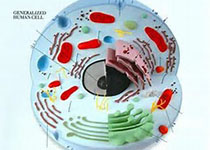Cell: Wnt signaling pathway mediates neuronal to intestinal cell mitochondrial stress response
August 15, 2018 Source: Genetic Development Institute
Window._bd_share_config={ "common":{ "bdSnsKey":{ },"bdText":"","bdMini":"2","bdMiniList":false,"bdPic":"","bdStyle":" 0","bdSize":"16"},"share":{ }};with(document)0[(getElementsByTagName('head')[0]||body).appendChild(createElement('script')) .src='http://bdimg.share.baidu.com/static/api/js/share.js?v=89860593.js?cdnversion='+~(-new Date()/36e5)];
Mitochondria are not only the center of cellular energy supply, but also one of the important organelles that regulate the aging process and affect neurodegenerative diseases. When the mitochondrial function is damaged, the mitochondrial unfolded protein reaction (UPRmt) will be initiated, and the expression levels of mitochondrial molecular chaperones, proteases, and metabolism-related genes will be up-regulated, and the mitochondrial homeostasis will be reconstructed. In a multicellular body, different tissues (neural cells - intestinal cells) also sense and coordinate their respective mitochondrial unfolded protein responses, ultimately systemically regulating the body's overall metabolic level and affecting the aging process. However, it is unclear how the organizations regulate and coordinate the regulation mechanisms of their mitochondrial homeostasis.
On July 26, the Tian Hao Research Group of the Institute of Genetics and Developmental Biology of the Chinese Academy of Sciences collaborated with Andrew Dillin, a professor at the University of California, Berkeley, on Cell, entitled Mitochondrial unfolded protein response is mediated cell-non-autonomously By retromer-dependent Wnt signaling article. The study found that Wnt, an important factor in developmental regulation, is involved in mediating mitochondrial stress responses between nerve cells and intestinal cells. It is also revealed that this transcellular and inter-tissue regulation of mitochondrial stress response is dependent on the Retromer complex, the Wnt signaling pathway, and the neurotransmitter serotonin.
Using the C. elegans model, Tian Hao's research team established a mitochondrial signal regulation system between nerve cells and the intestine. The expression of Huntington's disease-causing protein PolyQ40 in nematode nerve cells can induce mitochondrial unfolded protein response in the intestine. . The Retromer complex was found to be involved in the regulation of mitochondrial stress responses between nerve cells and the intestine by genetic screening. Further studies revealed that the Retromer complex achieves this mitochondrial signaling across cells through the recovery of the Wnt-secreting receptor MIG-14 and the secretion of the Wnt ligand EGL-20. The neurotransmitter serotonin (5-HT) is also involved in Wnt-induced mitochondrial stress response between nerve cells and the gut. At the same time, direct expression of Wnt ligands in nerve cells and intestines not only activates mitochondrial stress responses, but also prolongs the lifespan of nematodes. This study found that Wnt is involved in the regulation of mitochondrial homeostasis, a new function, and provides new therapeutic ideas for the treatment of neurodegenerative diseases and the accompanying symptoms of metabolic disorders.
Tian Hao, Ph.D. student, Zhang Wei, assistant researcher Yan Xueying, and doctoral student Chen Peng are the co-first authors of the paper. Other authors of the paper include the post-doctoral Liu Limeng of Tian Hao Research Group and Xin Nan of Andrew Dillin's research group. . Tian Wei and Andrew Dillin are co-authors of the paper. The research was funded by the key research and development program of the Ministry of Science and Technology, “Control of Protein Machines and Life Processesâ€, the Chinese Academy of Sciences Pilot Project, the National Natural Science Foundation, and the Youth Thousand People Project.
Office Safe,Office Digital Safe,Security Office Safe,Electric Key Safe Box
Ningbo Reliance Security Technology CO.,Ltd , https://www.reliancesafes.com